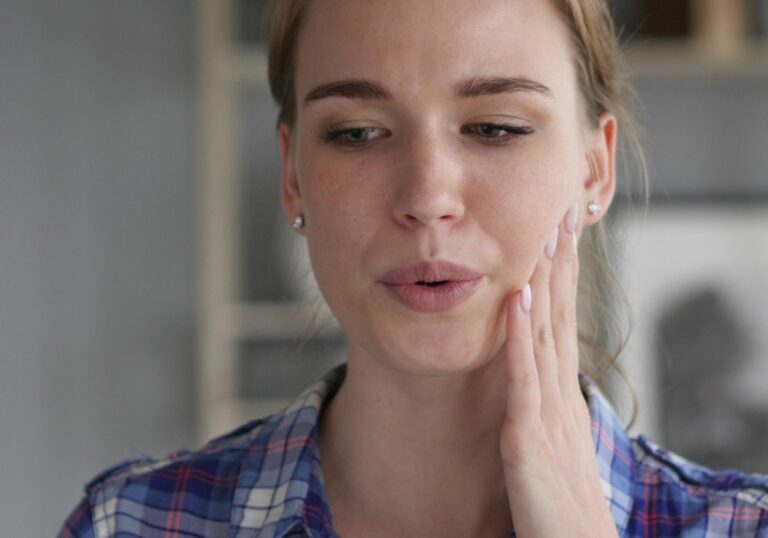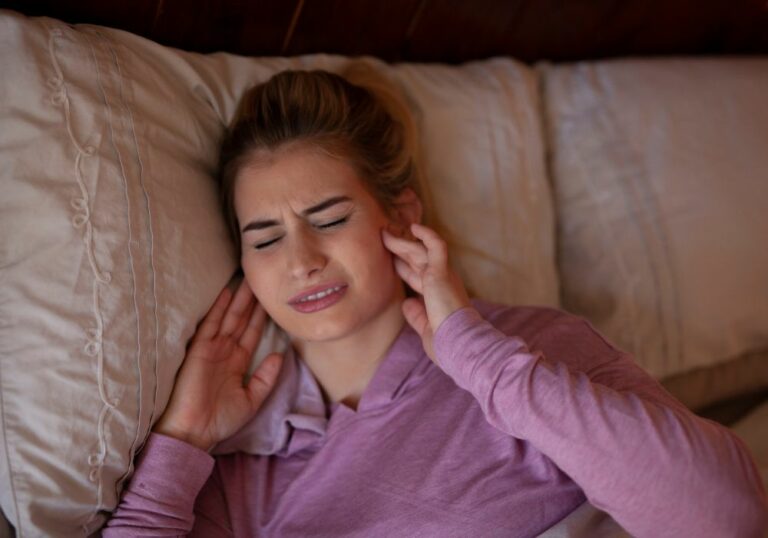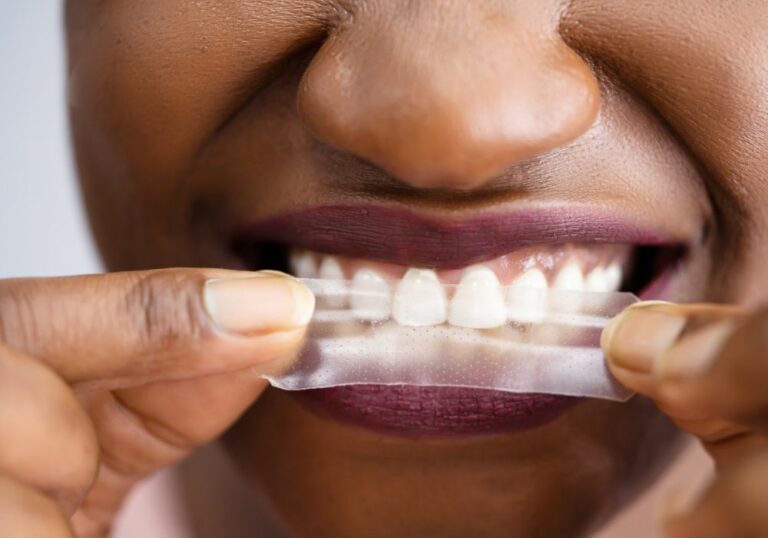If you’re like most people, you probably enjoy snacking on crackers from time to time. They’re convenient, tasty, and can be paired with a variety of toppings. However, you may be wondering whether crackers are good or bad for your teeth. After all, some foods can cause tooth decay and other dental problems.
While crackers may not be as harmful to your teeth as candy or sugary drinks, they can still pose a risk. This is because many types of crackers contain a high amount of starch, which can be converted into sugar by the bacteria in your mouth. When these bacteria feed on the sugar, they produce acid that can erode your tooth enamel and lead to cavities. Additionally, some crackers can stick to your teeth and linger in your mouth for a long time, providing a breeding ground for bacteria.
Understanding Crackers and Teeth Health

When it comes to oral health, many people focus on sugary treats like candy and soda. However, it’s important to also pay attention to the impact that starchy foods like crackers can have on your teeth.
Crackers are a popular snack food that can be found in many households. They come in a variety of flavors and can be eaten on their own or paired with toppings like cheese or peanut butter. However, crackers are not as tooth-friendly as you might think.
One of the main issues with crackers is their texture. They are dry and crispy, which means that when you eat them, they can stick to your teeth and stay there for a while. This prolonged exposure to the starch in crackers can lead to the breakdown of tooth enamel over time.
Another problem with crackers is that they are highly processed and often contain added sugars and salt. This can make them more cariogenic, meaning that they are more likely to cause tooth decay.
On the other hand, there are some types of crackers that are better for your teeth than others. Whole-grain crackers, for example, are a better choice than highly processed crackers because they contain more fiber and are less likely to stick to your teeth.
When it comes to snacking, it’s important to make choices that support your dental health. While crackers can be a convenient and tasty option, it’s best to consume them in moderation and choose whole-grain varieties when possible. Additionally, make sure to brush and floss regularly to remove any food particles that may be stuck in your teeth.
Crackers: A Closer Look
When it comes to snacking, crackers may seem like a healthier option compared to candy and other sugary treats. However, it’s important to take a closer look at how crackers can affect your teeth.
According to dental experts, crackers can be harmful to your teeth because of their texture and the amount of time they can linger in your mouth. When you eat crackers, they break down into small particles that can get stuck in the crevices of your teeth and gums. This can lead to the growth of harmful bacteria, which can cause cavities and other dental problems.
But not all crackers are created equal. Some crackers are better for your teeth than others. Here are some things to keep in mind when choosing crackers:
- Look for crackers with high fiber content. Fiber can help stimulate saliva production, which can help neutralize harmful acids in your mouth.
- Avoid crackers with added sugars. Sugars can stick to your teeth and promote the growth of harmful bacteria.
- Choose whole-grain crackers over refined ones. Whole-grain crackers are a better source of nutrients and can help promote dental health.
- Consider pairing crackers with cheese or other dairy products. Dairy products contain calcium, which can help strengthen your teeth.
Overall, crackers can be a part of a healthy diet as long as you choose them wisely and practice good dental hygiene. Remember to brush and floss regularly and visit your dentist for regular checkups and cleanings.
The Impact of Crackers on Teeth
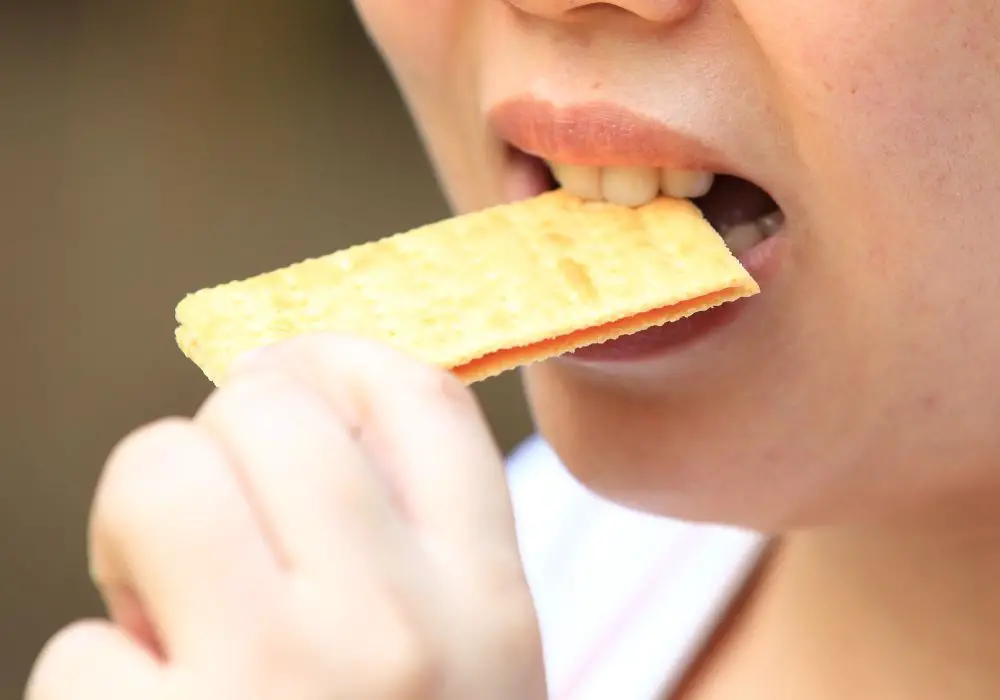
When it comes to dental health, we often hear about the negative effects of sugary foods and drinks. However, did you know that starchy foods like crackers can also be harmful to your teeth? Here’s what you need to know about the impact of crackers on your dental health.
Crackers are a popular snack food and can be found in many households. While they may seem harmless, crackers can actually contribute to tooth decay and other dental problems. Here’s why:
- Stickiness: When you chew on crackers, they can become sticky and cling to your teeth. This can make it difficult for saliva to wash away any food particles or bacteria that may be left behind, leading to an increased risk of tooth decay.
- Carbohydrates: Crackers are high in carbohydrates, which can also contribute to tooth decay. When carbohydrates break down in your mouth, they turn into sugars that can be harmful to your teeth.
- Acidic ingredients: Some crackers may also contain acidic ingredients like vinegar or lemon juice. These acids can weaken your tooth enamel over time, making your teeth more susceptible to decay and damage.
To minimize the impact of crackers on your dental health, here are a few tips:
- Brush and floss regularly: Brushing and flossing can help remove any food particles or bacteria that may be left behind after eating crackers.
- Choose healthier options: Look for crackers that are low in carbohydrates and sugar, and avoid those that contain acidic ingredients.
- Drink water: Drinking water can help wash away any food particles or bacteria that may be left behind in your mouth after eating crackers.
By being mindful of the impact of crackers on your dental health and taking steps to minimize their negative effects, you can enjoy this popular snack food without compromising your dental health.
Crackers and Oral Hygiene
When it comes to oral hygiene, you may wonder if crackers are okay for your teeth. While crackers are a popular snack, they can have both positive and negative effects on your teeth.
On the positive side, crackers are not sticky and do not contain added sugars, which can be harmful to your teeth. Additionally, some crackers are made with whole grain, which can provide some nutritional benefits.
However, crackers can also be harmful to your teeth. When you chew crackers, they break down into small particles that can get stuck in between your teeth. If these particles are not removed through brushing or flossing, they can lead to plaque buildup and eventually tooth decay.
To minimize the negative effects of crackers on your teeth, it is important to practice good oral hygiene. This includes brushing your teeth twice a day with fluoride toothpaste, flossing daily, and visiting your dentist regularly for cleanings and checkups.
In addition, you can choose crackers that are less harmful to your teeth, such as those made with whole grains or those that are low in salt and sugar. You can also pair crackers with foods that can help neutralize the acids in your mouth, such as cheese or vegetables.
Overall, while crackers can be a convenient and tasty snack, it is important to be mindful of their effects on your oral health and take steps to minimize any negative effects.
Healthy Alternatives to Crackers
If you’re looking for healthy alternatives to crackers, there are plenty of options out there. Here are two great options to consider:
Whole Grain Crackers
Whole grain crackers are a great alternative to traditional crackers. They are made with whole grains, which means they are packed with fiber and other important nutrients. Some great options include:
- Triscuit Whole Grain Crackers
- Mary’s Gone Crackers Original Crackers
- Blue Diamond Almond Nut-Thins
These crackers are all made with whole grains and are a great source of fiber and other important nutrients. They are also low in sugar and fat, making them a great choice for anyone looking to maintain a healthy diet.
Vegetable Crackers
Another great option for healthy crackers is vegetable crackers. These crackers are made with vegetables, which means they are packed with vitamins and minerals. Some great options include:
- Crunchmaster Multi-Seed Crackers
- RW Garcia 3 Seed Sweet Potato Crackers
- Trader Joe’s Beet Crackers
These crackers are all made with real vegetables and are a great source of vitamins and minerals. They are also low in sugar and fat, making them a great choice for anyone looking to maintain a healthy diet.
In conclusion, if you’re looking for healthy alternatives to crackers, there are plenty of options out there. Whole grain crackers and vegetable crackers are both great options that are packed with nutrients and low in sugar and fat.
Expert Opinions on Crackers and Teeth Health
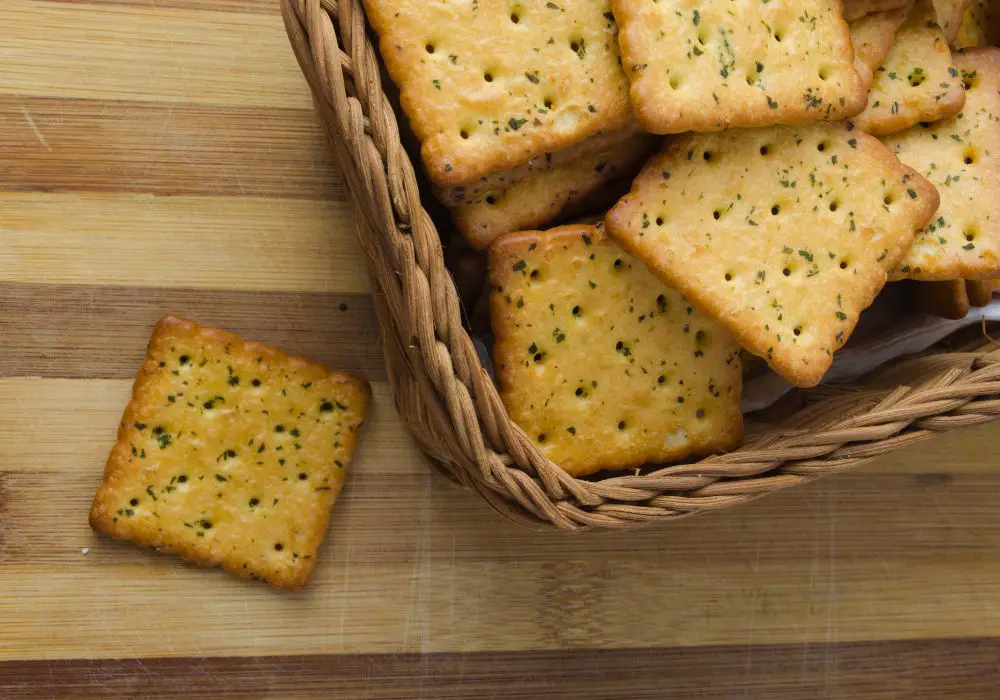
When it comes to crackers and teeth health, there are varying opinions from dental experts. Some say that crackers are okay for your teeth, while others advise against them.
One of the main concerns with crackers is that they are starchy and can get stuck in between your teeth, leading to tooth decay. However, some experts argue that as long as you brush and floss regularly, crackers are not a major threat to your teeth.
According to Dr. Ada Cooper, a spokesperson for the American Dental Association, crackers can be a good snack option as long as you choose the right type. Whole-grain crackers are a better choice than refined flour crackers because they contain more fiber and are less likely to stick to your teeth.
On the other hand, Dr. Mark Burhenne, a dentist and oral health expert, advises against crackers altogether. He explains that crackers are highly processed and contain added sugars and oils, which can lead to tooth decay and gum disease.
Another factor to consider is the acidity of crackers. Acidic foods can erode tooth enamel, making teeth more susceptible to decay. Some crackers, such as saltine crackers, are highly acidic and can be harmful to your teeth.
In summary, the opinions of dental experts on crackers and teeth health are mixed. While some believe that crackers can be a healthy snack option when chosen carefully and consumed in moderation, others advise against them due to their high starch and sugar content. It is important to brush and floss regularly and choose whole-grain crackers over refined flour crackers to minimize the risk of tooth decay.
Tips for Eating Crackers Without Damaging Teeth
If you enjoy eating crackers but are concerned about damaging your teeth, there are some tips you can follow to minimize the risk of harm. Here are some suggestions:
1. Choose the Right Type of Cracker
Some types of crackers are better for your teeth than others. Choose crackers that are low in sugar and don’t stick to your teeth. Whole-grain crackers are a good option because they are high in fiber and don’t contain added sugars.
2. Eat Crackers with Other Foods
Eating crackers with other foods can help to neutralize the acids in your mouth. Pairing crackers with cheese, for example, can help to balance the pH levels in your mouth and reduce the risk of tooth decay.
3. Drink Water with Your Crackers
Drinking water while you eat crackers can help to wash away any food particles that may be stuck in your teeth. It can also help to stimulate the production of saliva, which can neutralize the acids in your mouth.
4. Avoid Eating Crackers as a Snack
If possible, try to eat crackers as part of a meal rather than as a snack. Snacking on crackers throughout the day can increase the amount of time that your teeth are exposed to acids, which can increase the risk of tooth decay.
5. Practice Good Oral Hygiene
Maintaining good oral hygiene is important for protecting your teeth from damage. Brush your teeth twice a day, floss regularly, and visit your dentist for regular checkups and cleanings.
By following these tips, you can enjoy crackers without putting your teeth at risk. Remember to choose the right type of cracker, eat them with other foods, drink water, avoid snacking, and practice good oral hygiene.
Frequently Asked Questions
Can eating crackers damage your teeth?
Eating crackers in moderation is not likely to cause damage to your teeth. However, some types of crackers can be hard and sharp, which may cause discomfort or even damage your teeth. It’s best to avoid crackers that are too hard or crunchy, especially if you have sensitive teeth or recent dental work.
What are some tooth-friendly snacks?
If you’re looking for tooth-friendly snacks, there are many options to choose from. Some examples include fresh fruits, vegetables, nuts, and cheese. These foods are not only nutritious but also low in sugar and acid, which can help protect your teeth from decay and erosion.
How can I protect my teeth while snacking?
To protect your teeth while snacking, it’s important to choose snacks that are low in sugar and acid. You can also rinse your mouth with water after snacking to help wash away any remaining food particles. Chewing sugar-free gum can also help stimulate saliva production, which can neutralize acid and protect your teeth.
Do crackers have any nutritional value for teeth?
Crackers can provide some nutritional value for teeth, depending on the type of cracker you choose. Whole-grain crackers, for example, are a good source of fiber, which can help promote healthy digestion and reduce inflammation in the body. Some crackers may also contain calcium, which is important for strong bones and teeth.
Are there any types of crackers that are better for teeth?
If you’re looking for tooth-friendly crackers, it’s best to choose crackers that are low in sugar and acid and made with whole grains. Avoid crackers that are too hard or crunchy, as they may cause discomfort or damage your teeth. Some examples of tooth-friendly crackers include whole-grain crackers, rice crackers, and whole-wheat pita chips.
What are some alternatives to crackers for a tooth-friendly snack?
If you’re looking for alternatives to crackers for a tooth-friendly snack, there are many options to choose from. Some examples include fresh fruits, vegetables, nuts, and cheese. These foods are not only nutritious but also low in sugar and acid, which can help protect your teeth from decay and erosion.


